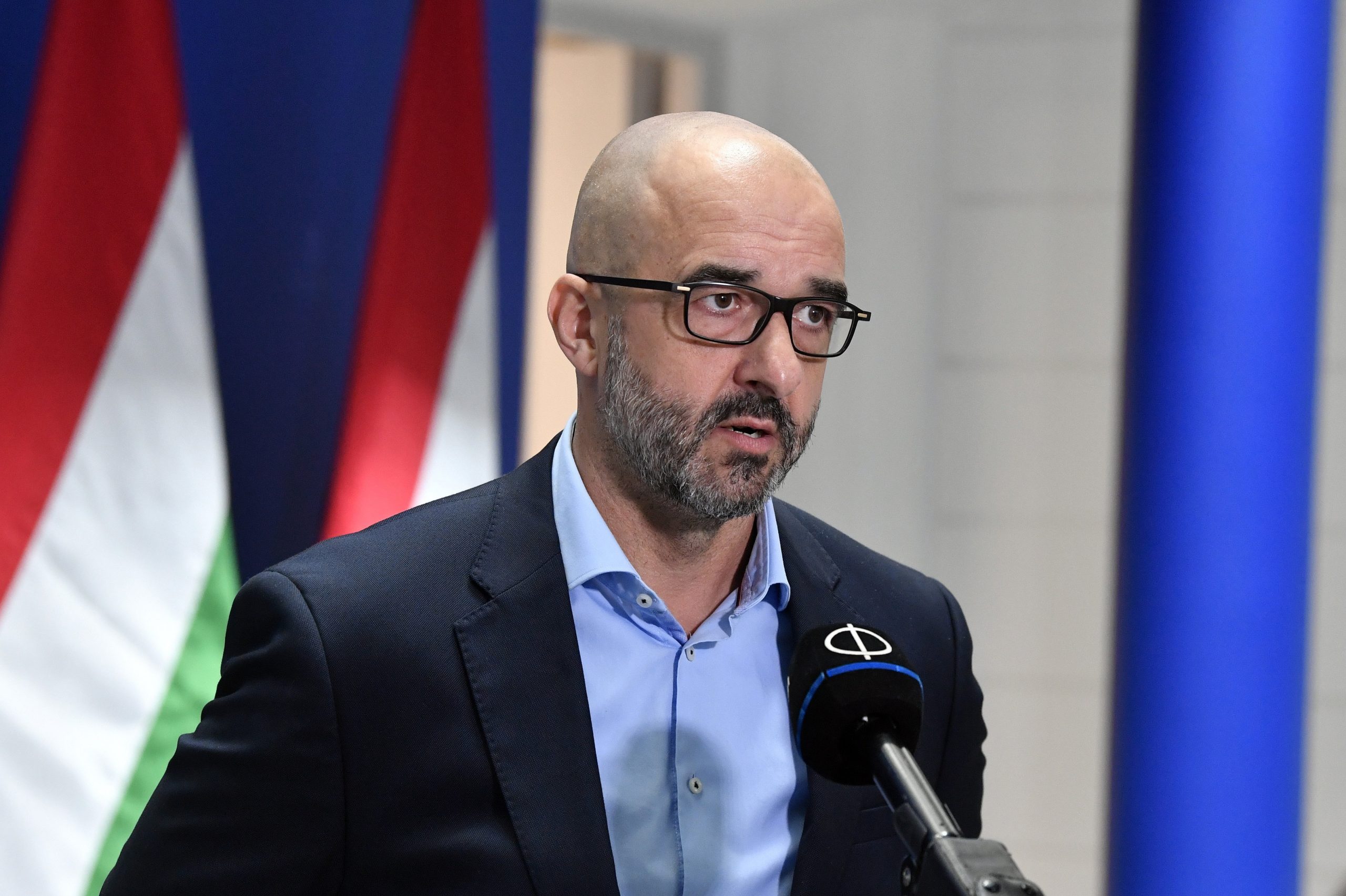
Zoltán Kovács said that out of the over 1.4 million respondents, 99 percent said that they approved of the government's position on rejecting any such plans.Continue reading

The biggest negative effect of the EU’s regulation on mandatory migrant quotas is that it forces migrants on Europe, Hungary and the Hungarian people, and sends an invitation to millions of migrants, the Minister of the Prime Minister’s Office said at the Government Info in Budapest on Thursday.
Gergely Gulyás also said that the decision on migration reached by the Council of Ministers was contrary to the agreement reached earlier by the heads of state and government, according to which unanimous decisions would be taken on the issue of migration. The Hungarian government therefore did not contribute to the decision that would have confirmed the decision taken by the Council of Ministers at European Council level, he explained.

Minister Gergely Gulyás. Photo: MTI/Soós Lajos
He stressed that the draft legislation is not only about compulsory quotas and resettlement, but also includes the idea that Hungary should process at least 10,000 asylum applications a year. To do this, they would have to be allowed into the country and reception camps would have to be set up. He said that, observing the processes in Western Europe, it was clear that these reception camps, which would have to be set up in accordance with EU standards, could easily become migrant ghettos and could not be closed according to the standards. This would pose a very serious risk to public safety and public health, he added.
He stressed that the idea of these reception camps is tantamount to dismantling the existing border fence, because anyone who applies for asylum at the border would have to be allowed to enter the country. The minister said:
All responsible governments in Central Europe, where societies are still free from all the consequences of migration, must do everything possible to ensure that this completely senseless and insane regulation does not enter into force.
That is why the Hungarian prime minister refused to allow the EU summit to adopt a joint declaration by the heads of state and government.
He said that “the Polish prime minister’s opinion was the same as ours” and that there were many countries that agreed with the Hungarian position in principle, only to come to a different conclusion because of the large number of migrants on their territory, such as Italy. It is in their interest that “those they have are taken away from them”, he pointed out.
The minister also said that the amendment to the EU budget requires unanimity, so there is no realistic chance of the proposed amendment being adopted.
Brussels has asked member states to pay an additional €98.5 billion, which is fifteen times the total annual Hungarian social security contributions, roughly the amount of the entire annual Hungarian state budget. Obviously, much less of this will go to Hungary, but the amount is still huge, enough that not even Austria or Germany want to take on the burden in this form, he pointed out.
He stressed that several questions need to be clarified, such as what Brussels spent the money on, as there should be more money, not less, because Poland and Hungary have not been given a single penny in EU Funds. Moreover, the countries that have benefited from the recovery fund complain that payments are slow, he said.
He stressed that Brussels had asked for €50 billion to go to Ukraine, and that the European Commission wanted to finance interest payments, spend on migrants but not on border protection, and €1.5 billion to pay Brussels bureaucrats. Hungary cannot contribute to this, and since the amendment of the budget requires unanimity, there is no realistic chance of such an amendment being adopted, he said.
He called for neither left-wing MEPs – who earn the equivalent of six million forints net per month in euros in Brussels – nor their political groups to block access to EU funds, and for the Commission to call on Hungary to take the first big step in line with the agreement in the operational program.
Featured Image: Facebook Határvadász